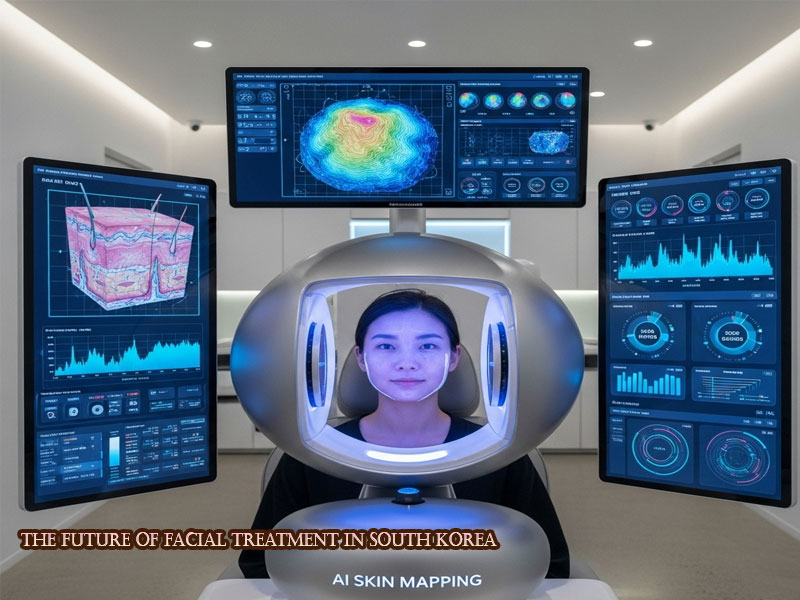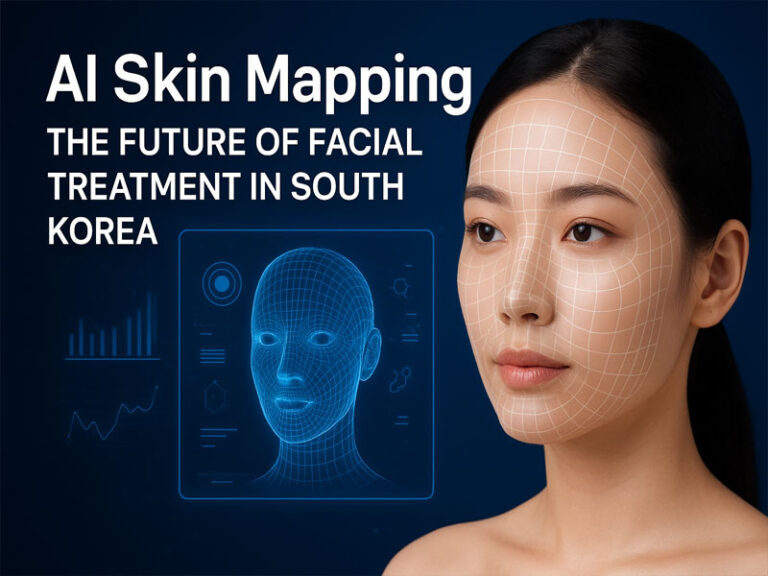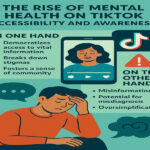Dizzy PT – South Korea has long been recognized as the global capital of beauty innovation, leading the way in skincare trends, technologies, and treatments. From sheet masks to snail mucin, the country consistently pioneers practices that later spread across the globe. Today, a new technological revolution is taking place in the beauty industry: AI Skin Mapping. This breakthrough technology is redefining how people approach facial care by providing hyper-personalized solutions based on precise data.

Why AI Skin Mapping is a Game-Changer
The introduction of artificial intelligence into skincare is not merely a trend but a paradigm shift. AI Skin Mapping uses high-resolution imaging combined with machine learning algorithms to analyze an individual’s skin condition. It can detect hydration levels, pore size, pigmentation, elasticity, and even early signs of aging with incredible accuracy.
According to Dizzy PT, one of the most active lifestyle and wellness platforms in Asia, this technology allows dermatologists and aestheticians to move beyond “one-size-fits-all” recommendations. Instead, every treatment is tailored specifically to the individual’s skin. For example, two people with acne might require completely different treatments depending on whether the root cause is oil imbalance, bacteria, or stress-related hormonal changes.
This level of personalization marks a significant departure from the traditional trial-and-error approach, reducing wasted time and money while boosting customer satisfaction.
Read more: “WHO issues warning heatstroke cases surge in Asian countries“
AI Skin Mapping in Clinics: Why South Korea Leads the Way
It is no coincidence that South Korea is leading this transformation. The country already has one of the most advanced cosmetic and skincare industries in the world, with government-backed research, state-of-the-art clinics, and consumers who demand cutting-edge solutions.
In Seoul’s Gangnam district, many dermatology clinics and aesthetic centers are already equipped with AI Skin Mapping systems. These clinics attract both local residents and international clients seeking precision-based skincare. The technology offers multiple advantages:
- Accurate diagnosis – Detects hidden skin issues before they become visible.
- Data-driven treatment plans – Recommends customized facials, serums, or laser procedures.
- Long-term monitoring – Tracks skin improvement over months, ensuring treatment effectiveness.
Dizzy PT notes that clinics adopting AI-driven tools report higher client trust and better results compared to traditional methods.
Transforming the Consumer Beauty Market
Beyond clinics, AI Skin Mapping is also making its way into consumer products. Several South Korean skincare brands now integrate this technology into mobile apps or smart mirrors, allowing users to scan their skin at home. With just a smartphone camera, the system can provide daily updates and suggest product adjustments.
This democratization of AI-powered skincare opens opportunities for individuals who cannot regularly visit dermatologists. Brands use the data to recommend personalized skincare regimens—from cleansers to sunscreens—ensuring that consumers get exactly what their skin needs.
In fact, South Korean tech companies are collaborating with beauty giants to integrate AI-driven skincare into e-commerce platforms. Imagine browsing an online store and receiving personalized product suggestions based on your skin scan—that future is already becoming a reality in Seoul.
Social and Psychological Impact of AI Skin Mapping
Skincare in South Korea is not just about beauty but also self-confidence and cultural identity. With rising pressures from social media and digital aesthetics, people are more conscious of their appearance than ever before. AI Skin Mapping helps alleviate some of that anxiety by offering objective assessments rather than guesswork.
For many users, the technology acts as a trusted companion, guiding them step-by-step toward better skin health. According to surveys highlighted by Dizzy PT, individuals using AI-based skincare solutions report higher satisfaction with their routines and greater confidence in their results.
Challenges and Ethical Concerns
While the benefits are clear, AI Skin Mapping also raises important questions:
- Data Privacy: Since the technology relies on facial scans, protecting user data from misuse is critical.
- Accessibility: High costs may prevent wider adoption outside of major urban areas.
- Over-reliance on Technology: Some critics argue that focusing solely on digital diagnostics could overshadow holistic approaches to health, such as diet, stress management, and lifestyle.
Experts emphasize the importance of balancing technological innovation with ethical considerations. Regulations and transparency will play a crucial role in shaping the future of AI-driven skincare.
Read more: “Gempa 5,4 SR Mengguncang Sumatra Utara“
The Future of AI Skin Mapping in South Korea
Looking ahead, AI Skin Mapping is expected to expand beyond dermatology into fields like plastic surgery, wellness, and even telemedicine. Remote consultations could allow dermatologists to analyze patients’ skin conditions virtually, making advanced skincare more accessible across Asia and beyond.
Artificial intelligence will also continue to evolve, becoming more precise by learning from millions of skin profiles worldwide. This means the technology will not only recognize existing conditions but potentially predict future issues, empowering users to take preventive action.
South Korea’s leadership in this domain positions it as the hub of global beauty innovation for years to come.
AI Skin Mapping as a Global Standard
AI Skin Mapping represents more than just a beauty trend—it is the fusion of science, technology, and culture. By enabling highly personalized treatments, it helps individuals achieve healthier, more radiant skin while reshaping the global beauty industry.
From dermatology clinics in Seoul to smartphone apps used worldwide, this innovation proves that skincare is no longer about guesswork but precision. The technology addresses both medical and cosmetic concerns, bridging gaps between health and beauty.
With South Korea at the forefront, the rest of the world is now looking East to understand how AI and skincare can work hand-in-hand. The rise of AI Skin Mapping may very well set the global standard for future skincare practices.



